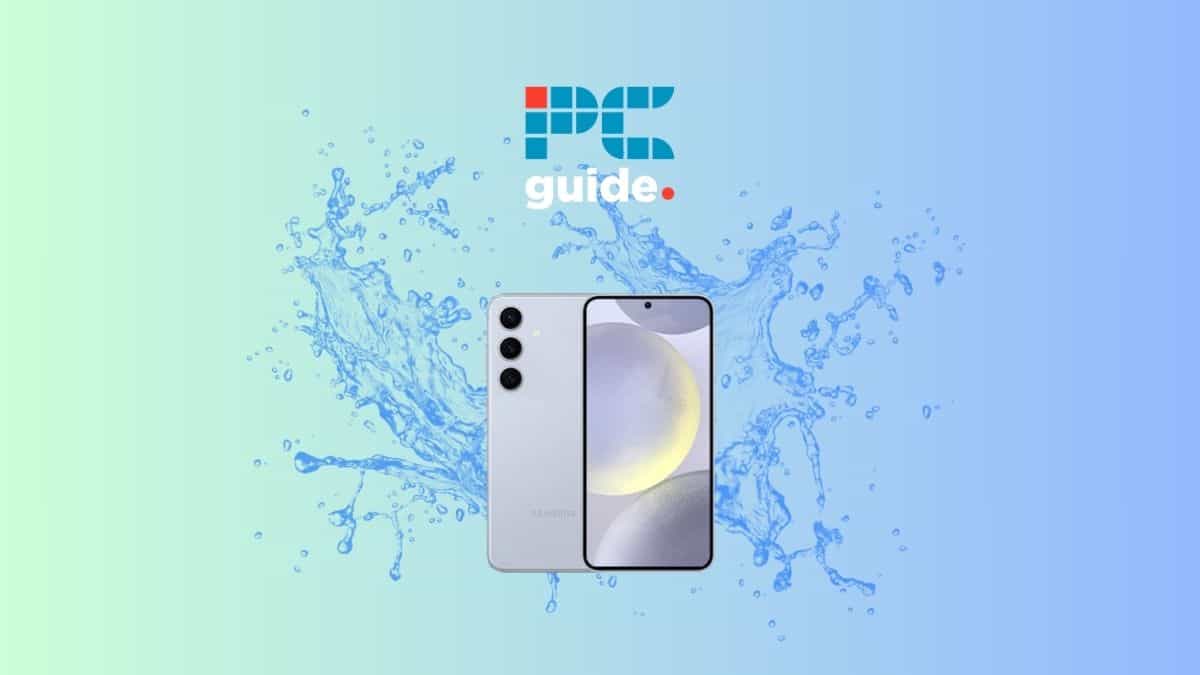Is the Samsung Galaxy S24 waterproof?

Table of Contents
Now that the time’s finally come to invest in the newest and best Galaxy device from Samsung, questions such as ‘Will the Galaxy S24 be waterproof?‘ are bound to come cropping up. We’ve got the full display, design, and camera qualities of the S24, but has the phone’s resilience against water changed at all? In this article, we’ll explore the latest information surrounding the waterproofing capabilities of the Galaxy S24 to see if it’s got as good an IP rating as its predecessors.
Is the Samsung Galaxy S24 waterproof?
The Galaxy S24 was finally unveiled at Samsung’s Galaxy Unpacked event, and it can be confirmed that the model will carry the same IP68 rating as the Galaxy S23 lineup. However, given that we knew that the design language wasn’t going to be too far off that of its predecessor, its IP68 rating really doesn’t come as too much of a surprise.
This means that the device will be dust-tight and can withstand being submerged in water under specified conditions. Having an IP68 rating provides users with peace of mind, knowing that their device is protected against accidental spills, splashes, and even short slips or dips into the water.
Is the Samsung Galaxy S24 Ultra waterproof?
As well as also getting an IP68 rating, Galaxy S24 users get an extra boost of durability, as Samsung has paired with Corning to create Corning Gorilla Armor that will provide more protection from day-to-day wear and scratches than any other Galaxy S phone. When tested by Corning, this Gorilla Armor allegedly proved “over four times more scratch resistance than competitive aluminosilicate cover glasses”. So, as we put our smartphones through even more testing conditions as well as bracing everyday wear and tear, the Galaxy S24 Ultra stands out as providing high-level water resistance as well as improved resistance to general wearing and scratching. As expected, Samsung has brought an extra layer of future-proofing and protection to its most high-end smartphone.
Understanding the IP Rating
It’s important to understand the basics of the IP rating system to fully grasp the specifics of the Galaxy S24’s waterproofing capabilities. IP stands for Ingress Protection and is a universally accepted measurement for dust and liquid resistance. The IP rating consists of two digits, with the first digit representing the level of protection against solid particles and the second digit indicating the level of protection against liquids.
For example, an IP68 rating means that a device is dust-tight and can withstand continuous immersion in water under specified conditions. In this case, it means that the device is water resistant in fresh water to a maximum depth of 1.5 meters for up to 30 minutes, and is protected from dust. It’s worth noting that not all Galaxy devices have an IP rating, and it’s still necessary to consult the user manual or the official Samsung website for specific information about a particular device’s IP rating.
Water Resistance Tips and Considerations
While the Galaxy S24 and S24 Ultra might well have a high IP rating and robust waterproofing capabilities, it’s still essential to understand the limitations and take necessary precautions. Here are some tips and considerations to keep in mind when using a water-resistant device like the Galaxy S24 and S24 Ultra:
Avoid salt water and ionized water
It is recommended to avoid exposing the device to salt water or ionized water, as it can cause corrosion and damage the internal components. If the device comes into contact with salt water, rinse it with fresh water and dry it thoroughly.
Dry the device after exposure to water
After the device gets wet, it is crucial to dry it thoroughly with a clean, soft cloth. Pay special attention to areas like the earpiece, microphone, external speaker, and power/accessory interface connector.
Handle the device with care
Although the Galaxy S24 and S24 Ultra might be designed to be water-resistant, physical damage such as chips or cracks can compromise their waterproofing capabilities. It is important to handle the device with care and avoid subjecting it to unnecessary impacts or rough handling.
